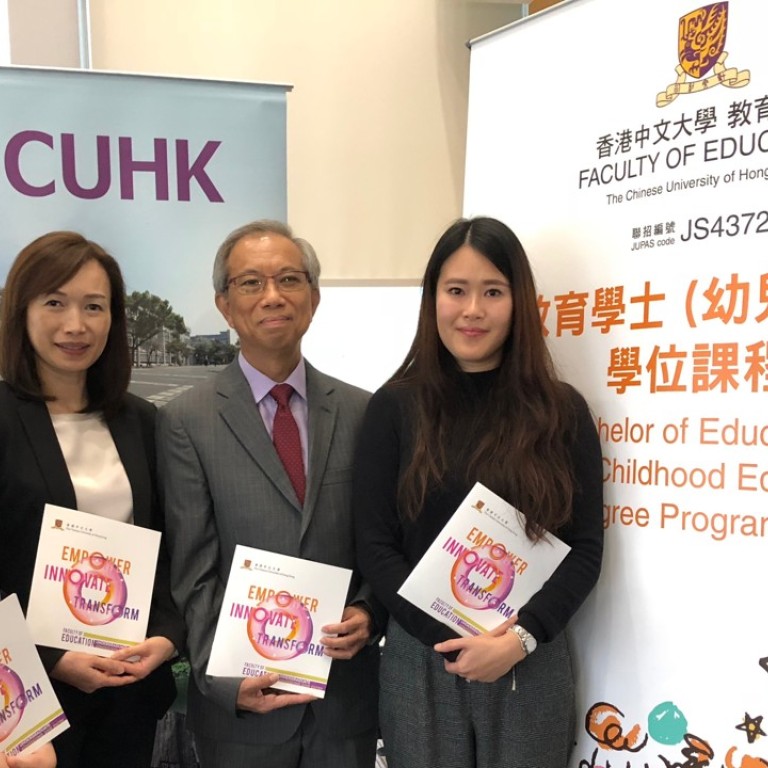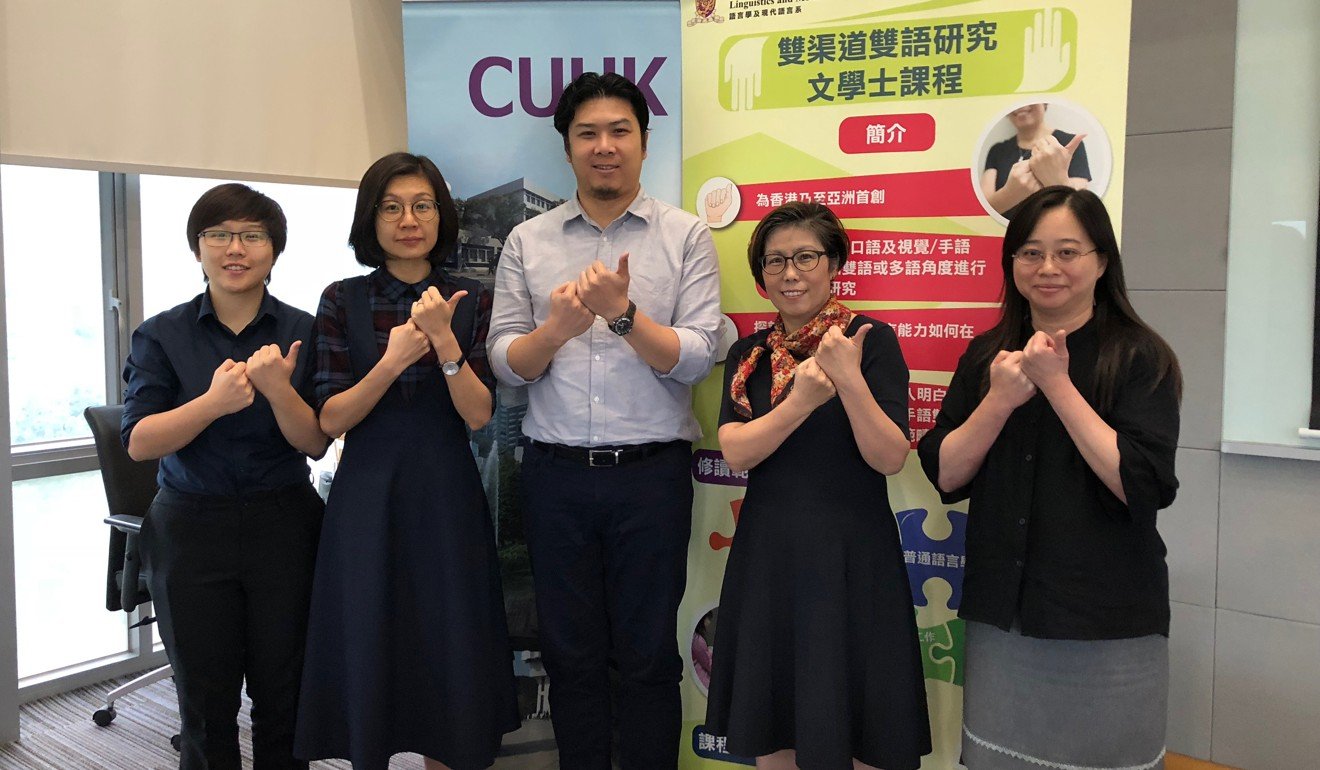
There is only one sign language translator for every 3,000 deaf people in Hong Kong. New course at Chinese University hopes to help city’s hard of hearing
Programme helping people become teachers and social workers is long overdue, says professor tasked with implementing it
With only 50 sign language translators in the Hong Kong, about 155,000 deaf people in the city have spent a lifetime learning to do what could not be more unnatural: pretending to hear well.
Chinese University is hoping to put an end to that.
The school’s department of linguistics and modern languages is offering Asia’s first two-year top up degree programme in bimodal bilingual studies, to help students become fully conversant in sign language.

Professor Gladys Tang Wai-lan, the director of the centre for sign linguistics and deaf studies at CUHK, said the programme had been a long time coming.
“The need to integrate the differently abled has been long overdue. Even though the society has adopted a more open-minded attitude towards sign language, there’s still a gap,” she said, pointing out that the city still lacked teachers, sign interpreters and social workers who could support effective interaction for the deaf and hard of hearing.
The grammar and phrasing for spoken languages is different than the wording for sign language
“Most people don’t understand the need to learn sign language, they think we can write down the message and the information would eventually get through to the deaf, but that’s not the case,” she said. “The grammar and phrasing for spoken languages is different than the wording for sign language.”
And, those enrolled will be given foundational training in general linguistics, and sign linguistics, to understand how knowledge is organised and transmitted visually.
However, Tang admitted that two years might not be enough for students to become fluent.
“Ideally, the programme would be a four-year degree course, but we want to start off with a two-year programme before further expanding it,” said Felix Sze Yim-binh, a linguistics associate professor at the department.
The government-funded programme provides six levels of sign language courses over the duration of the degree. By its conclusion, students will have spent more than 400 hours learning the nature of sign language, and enabling them to express themselves fully through its gestures.
Deaf teacher makes learning through sign language fun for hearing-impaired pupils
Available for application in summer next year, the first course is expected to be in the autumn. It will accept an initial quota of 20 students, who after graduating will eventually be able to pursue careers in education, with NGOs, and as translators.
Meanwhile, the university is also rolling out an early childhood education degree programme next year, to provide those interested in the field with another alternative.
The five-year, full-time bachelor of education programme is offered by the university in Sha Tin, and aims to help students become well-rounded educators for the city’s kindergartens and preschools.

The dean at the faculty of education, Professor Alvin Leung Seung-ming, said students would be taught about child development and pedagogical skills, and the sensitivity to identify children with special needs.
In addition, Leung said students would have the flexibility to choose professional courses offered by other departments.
“This will give them a chance to pursue minors of their choices,” he said.
Graduates from the new government-funded studies will attain three early childhood education qualifications: registered kindergarten teacher, childcare worker, and supervisor.
Hongkongers told to learn basic sign language to help get best from deaf residents
Meanwhile, the Hong Kong Society for the Deaf welcomed the university’s move.
Its director, Winnie Wong Ho Kit-yuk, said it was encouraging to see the school incorporating sign language on campus.
“This brings an awareness to sign language and is also very helpful in promoting the need for the language.”
She added that the full-time programme could serve as an alternative for those keen to pursue a career that requires sign bilingualism.

